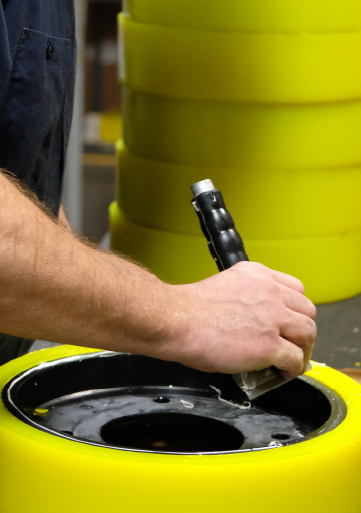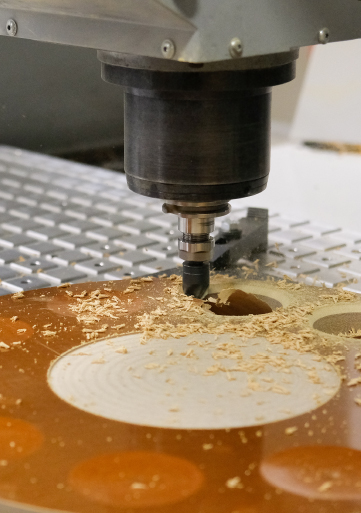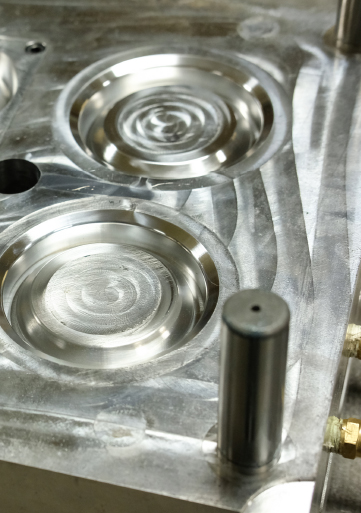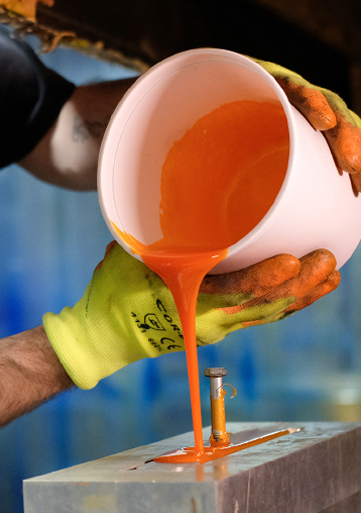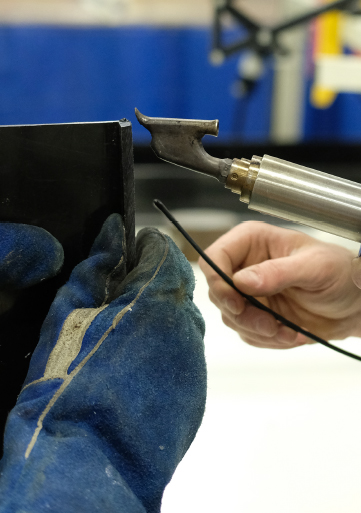With plastics weighing less, requiring less manufacturing time and energy, and being corrosion and abrasion-resistant, it’s no wonder more companies and industries are choosing plastic engineering over metal for their components and parts. Here are the top 10 reasons why you should consider converting to plastic:
1. Plastics weigh less than metals
The lightweight nature of plastics creates a ripple effect, leading to savings in both money and energy. The difference in weight between metals and plastics is substantial. For example, nylon is 1/6th the weight of steel, and cast nylon is 1/3rd the weight of aluminum. Lower weight means lower shipping costs and less energy used for transportation.
2. Plastics protect mating parts and products
Producing quality products is a goal every engineer should strive for, and protecting these products during assembly and transportation is crucial. Plastics such as UHMW, Nylon, Acetal, Urethane, PET, and PTFE have a low coefficient of friction. Their excellent wear resistance and soft touch make them the designer’s choice for equipment requiring longer life. Contact between metal-to-metal, metal-to-glass, and metal-to-cardboard often results in high wear and damaged surfaces.
3. Plastics endure minimal friction
Plastics have low friction coefficients, reducing the need for sealed bearings and lubrication while increasing the lifespan of plastic components. This ultimately saves time and money. Metals with higher coefficients of friction require more lubrication and sealed bearings, leading to increased time and costs for maintenance and component replacement.
4. Plastics resist abrasion
Plastics have a proven track record of durability, especially regarding abrasion resistance. Materials like UHMW polyethylene excel in abrasion resistance and can outwear steel in sliding applications. On the other hand, metals endure higher abrasion, leading to quicker wear and reduced quality. Lower abrasion means a longer lifespan for products and machinery, making plastic components particularly valuable in industries like mining.
5. Plastics are resistant to chemicals and corrosion
Corrosion is no match for plastics, which can withstand aquatic corrosive effects and resist most chemicals. This makes them ideal for the water and wastewater treatment industries. You can select plastics based on their specific chemical resistance and operating temperature, which is a flexibility metals cannot offer. Metals are unstable, unable to withstand water and chemicals, and will eventually corrode into their stable mineral form.
6. Plastics provide designers with more flexibility
One of the most attractive qualities of plastics is their flexibility. No matter what you manufacture or your industry’s needs, a custom plastic fabrication process using a variety of polymers can create superior plastic solutions. Metals, by contrast, are typically more complex and restrictive to manufacture.
7. Plastics production takes less time and energy
Manufacturing plastic is significantly quicker and more efficient than manufacturing metal. The metal manufacturing process requires additional steps, such as painting, preparation, cutting, cleaning, and fixture construction, whereas prepping plastics does not involve these extra steps.
8. Plastics are durable
Despite being lightweight, plastics can be just as durable as metals. When calculated by the “strength-to-weight ratio,” plastics can even exceed metals in strength, regardless of size and weight. This means plastics not only weigh less than metals but can also be more durable.
9. Plastics are more affordable
With plastics weighing significantly less than metal alternatives, shipping costs are much lower. Additionally, the time it takes to manufacture plastics is significantly shorter than metals, reducing labor time and expenses. Various processes, including fabrication, injection molding, machining, urethane casting, and thermoforming, can be used to save money.
10. Plastics can be recycled and reused
Recent advances in technologies and systems for collecting, sorting, and reprocessing plastics are creating new opportunities for recycled plastic. By taking steps to recycle plastic and turn recycled plastic materials into new products, our industries can help divert plastic waste from landfills. Additionally, recycling and reusing plastic helps reduce fossil fuel consumption and carbon dioxide emissions.
Recycling of plastics is an essential strategy in most companies’ sustainability initiatives. In fact, at DPI, our green initiatives include in-house recycling. All the thermoplastic materials leftover from setup parts, end cuts, purges, and non-conforming parts are collected, ground up in-house, or sent out for high-volume grinding, then returned for 100 percent reuse.
We’re changing the plastics game with molded UHMW
Learn our secret to your industry success.
Or call us at 1-800-321-0084


